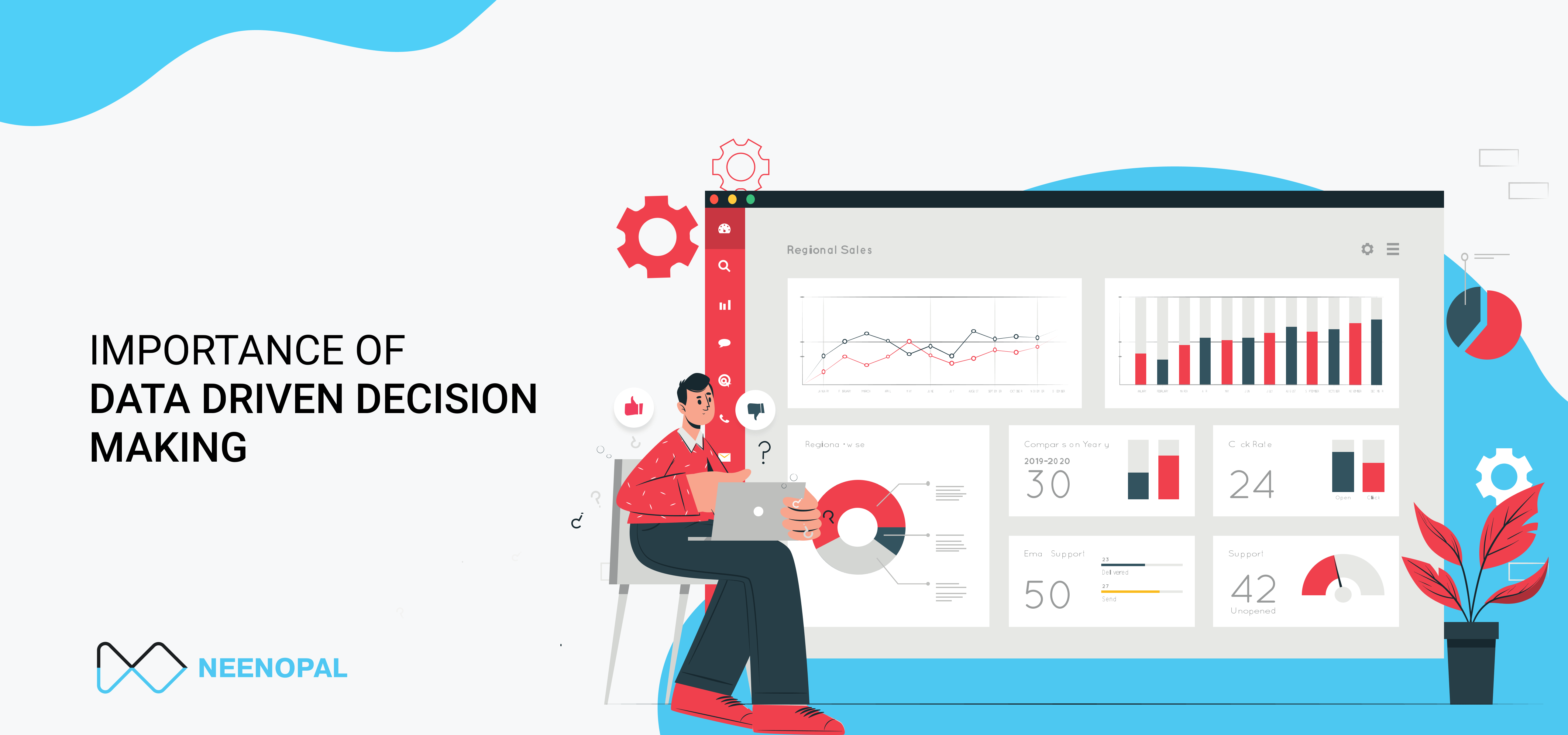In this rapidly evolving Global business environment, the difficulty of an organization to make a timely and accurate decision considering all the factors, challenges, opportunities, and adapt with agility is not just becoming a competitive advantage but also a requirement for survival.
DATA-DRIVEN DECISION MAKING :
Data-Driven Decision Making (DDDM) is an approach to business governance that is backed up by proven data rather than making decisions based on intuition and emotion. As business technology has improved exponentially in recent years, data-driven decisions are becoming a fundamental requirement in every industry. The success of this approach may also rely on the quality of data gathered and on how effectively we can analyze and interpret it.
HiPPO(Highest Paid Person’s Opinion) is one of the biggest barriers that many organizations are still facing against Data-Driven Decision-Making and evidence-based decisions.
WHAT IS HiPPO EFFECT :
Avinash Kaushik was the first to coin the term HiPPO in his book ‘Web Analytics: An Hour a Day.’ When a HiPPO is in the room, and a difficult decision needs to be made, but there's no data analysis to back up the decision, the group will often defer to the judgment of the HiPPO.
DANGERS OF HiPPO-DECISION MAKING :
With the quantity and quality of data available today, it is very foolish and ignorant of businesses to make decisions solely based on the HiPPO’s wants. Here is how HiPPO can be dangerous to an organization. Ron Johnson, former Retail Head of Apple, who was behind the huge success of Apple’s innovation and success in shaping the retail image in the market, also suffered from the HiPPO syndrome when he stepped in as the CEO of J.C.Penny, one of the largest departmental store chains in the US. He ignored the huge chunk of data and convinced himself that he didn’t need more information. With little marketing testing, he introduce the change from a traditional to a modern retail approach. This emotion-based judgment finally resulted in J.C. Penny’s failure.
HOW TO OVERCOME HiPPO EFFECT :
The Harvard Business Review found that while 80 percent of survey respondents rely on data in their roles and 73 percent rely on data to make decisions, 84 percent still said managerial judgment is a factor in making key decisions. An organization should depersonalize Decision-Making using reliable data. This would remove emotions and delay in opting for the right path. This is where we can quantify the ‘Cost of Delay’ and apply those assumptions into hypotheses, which will validate if the cost is justified. This would remove the emotion-based decision and also delayed decision where quantifying the Cost of Delay comes in, knowing the assumptions and applying them into hypotheses, and running experiments to validate or invalidate the assumed value.
IGNORANCE OF DATA :
As we drift, data has become everything. it is indispensable in decision-making. The right tool for discovering the data and crunching the numbers will give an organization a competitive edge in the market. One of the biggest problems is that business organizations themselves are ignoring data and neglecting their own chances of development. The below points illustrate how that is happening.
1. Companies that fail to analyze their Business Climate :
It is incredibly dangerous to an organization to ignore its changing Business Climate; it reflects their denial of accepting the risk. Business Climate may be many things like market size, type and level of competition, demography, tools used to run the organization, etc. This data is important to survive and thrive. Without this, an organization would become stagnant and eventually reach obsolescence.
2. Companies which do not rely on data :
Organizations are still stuck with old-age assumptions like, “This worked for the last ten years”, “why can’t we do what we trust?” etc. All these intuitions and gut-based decisions without proper data cause the organizations to fail. As mentioned in the above point, they won’t be equipped for changes. Without data, organizations would themselves be driven in an irrelevant direction.
3. Companies can’t analyze the root cause:
Data can immediately give some surface-level conclusions. For example, it is easy to identify the fluctuations in incoming traffic for a product or a website. This is an indication that customers aren’t interested in that product or service. This is where organizations delve deep to find the variables that would have influenced the new trend. The problem here is few companies dig deep to find accurate data. it is easy to find a few of the reasons leading to the decline, but it’s extremely difficult to pinpoint the root cause.
4. Collection of irrelevant data :
Even though data collection is an important factor, it depends on many variables like type of industry, demography, geography, level, and type of competition. Collecting too much information can be problematic if they are not properly segregated and filtered.
Acquiring, organizing, and implementing data are some of the important elements of any business. Implementing it inappropriately would put the business at risk and corrupt the entire business operation as humans are prone to error, so the interpretation of data would be skewed or biased. So, the usage of data analysis can avoid such ramifications.
Huge organizations are using DDDM to increase their success and profitability (popular examples are Google, Amazon, etc.)
Google is one of the most massive and rapidly growing organizations. The company's motto is to ensure all decisions are based on analytics and data. Google created the People Analytics department to help Human Resources make better decisions. This includes internal decisions through performance reports, reviews, and surveys. They even used a data-driven effort to award employees to boost employee morale and benefit the organization indirectly.
On the other hand, E-commerce sites typically use data to drive sales and profits. If you have used Amazon, you would have come across its recommendation of products that are customized for you. This is a simple example of data-driven decision-making.
The recommendations are based on the customer's past purchasing behavior, reviews after the purchase, the number of people viewed in and out, etc. They use something called key engagement metrics based on the clicks and customer footfall patterns. By integrating recommendations into every aspect of Amazon’s purchasing process, the company has found that product recommendations, in fact, do drive sales and increase the bottom line.





